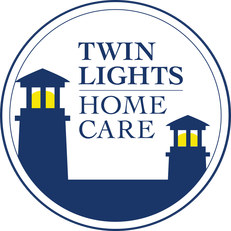|
When an elderly loved-one no longer is independent enough to live alone, deciding the best course of action can be very stressful. And unless family members are available to provide the necessary support, the most stressful part often is discovering the astronomical cost of long-term care. A number of recent studies and surveys make this painfully clear. Just last month, the big accounting firm PwC (formerly known as PricewaterhouseCoopers) published a comprehensive report based on insurance claims for long-term elderly care submitted to eight major insurers by a total of 270,000 policyholders. “Based on our research, we estimate that the current average lifetime cost for long-term care is $172,000,” according to the report. And that’s just the average. Among the top quartile – some 67,500 policyholders who spent the most money on care – the average was $240,000. The PwC report included two other sobering statistics:
Another study, by one of the biggest players in the elder-care insurance field, Genworth, found that the cost of a semi-private room in a nursing home rose 4.4% from 2016 to 2017 to $7,148 per month. And for a private room, the cost jumped 5.5% to $8,121 per month. And that’s the national average. In New Jersey, the cost of long-term care is higher across the board. A recent survey by Caring.com ranked states by the affordability of elder care. New Jersey placed near last, in 48th place, sandwiched between Hawaii and Rhode Island. Most nursing homes in New Jersey charge $100,000 or more for a private room. Of course a nursing home isn’t the only option available to elderly residents who need assistance with everyday tasks such as cooking, cleaning, laundry and hygiene. A growing number of home-care agencies offer services ranging from hourly visits by so-called home companions to round-the-clock assistance from certified home health aides. While less of a financial burden than a nursing home, such services still are far more expensive than many people realize. Twin Lights Home Care, which specializes in placing experienced, compassionate live-in aides at affordable rates, recently conducted an informal survey of home-care agencies serving the Monmouth County area. Rates for hourly care start at around $20 per hour, for a minimum of 20-25 hours per week. If a client needs fewer hours per week, the rate typically goes up to $22-$24 per hour. On weekends, rates run as high as $27 per hour. Do the math: An elderly man or woman requiring six hours of help each day could expect to pay about $1,000 per week – more than $50,000 a year. For seniors requiring more than a few hours a day, it may make sense to hire a live-in aide. Our survey found live-in daily rates ranging from $183 per day to $250 per day – for an average of about $220 per day. Many agencies tack on additional fees if an aide has to attend to a client at night, or the client has a pet. (Unlike the agencies we surveyed, Twin Lights is not a franchise. Our rate for a live-in aide is $175 per day, with no additional or hidden costs.) Even at the low end of the range, the cost for home-based care can be financially stressful, if not prohibitive, for many people. That’s why financial advisors and estate planners often recommend their clients consider buying long-term care insurance, so the costs don’t eat up their life savings. But, of course, such insurance policies also carry a cost – an increasingly high one, it turns out. Because insurance companies originally priced the policies too low, many of the biggest carriers, including Genworth, have suffered heavy financial losses. As a result, premiums for long-term care insurance have risen sharply in the past few years. Does long-term care insurance make sense for you? That will be the subject of my next blog, when I invite Toby Stark, president of the Stark Associates insurance agency of Tinton Falls, to answer important questions about the pros and cons of long-term care.
0 Comments
|
AuthorT.J. Foderaro Archives
February 2020
Categories
All
|
Copyright © 2023, Twin Lights Home Care, All RIghts Reserved

 RSS Feed
RSS Feed
